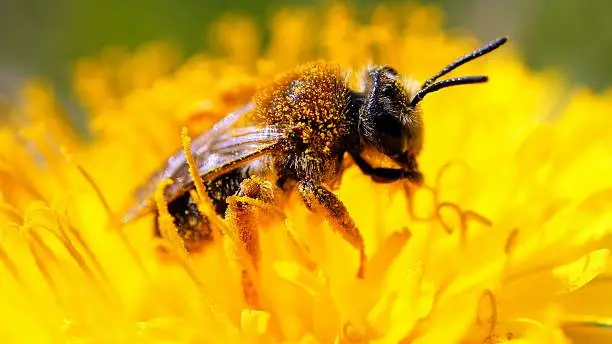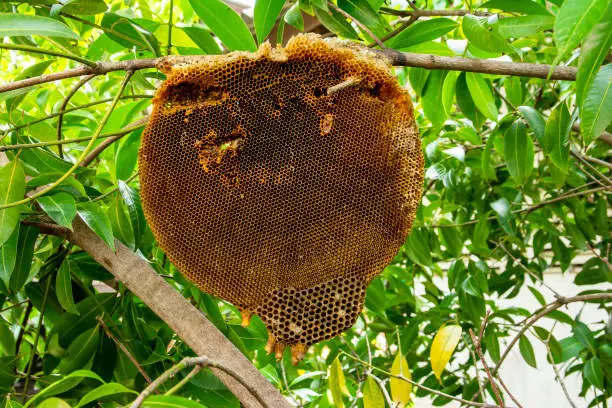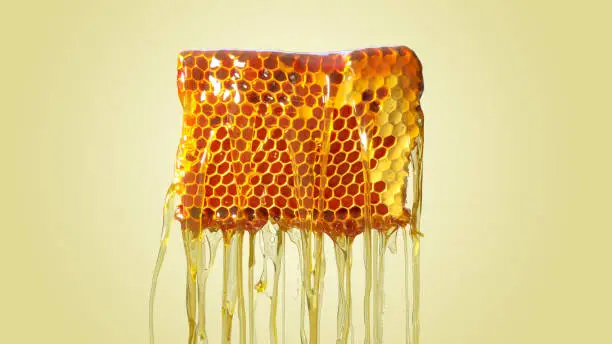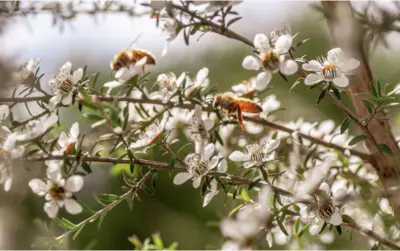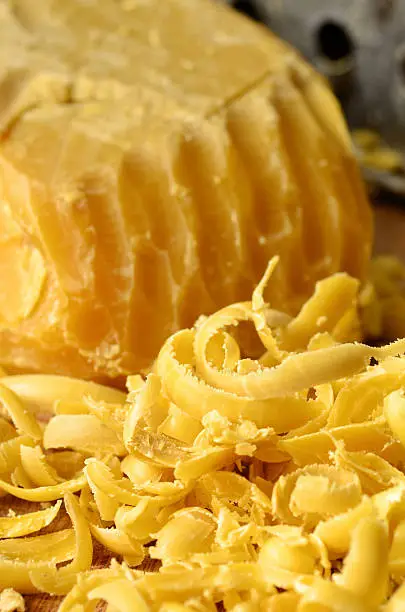Do Carpenter Bees Make Honey?
No, the carpenter bee is a solitary species that does NOT produce honey.
Engaging in the pollination of flowers and nourishing themselves with nectar, carpenter bees are sometimes misconstrued due to their resemblance to honey-producing counterparts. Despite this confusion, it is essential to recognize that carpenter bees are solitary insects, placing their primary focus on tending to their brood chambers and nests.
1. Carpenter Bee Basics
Carpenter bees are skilled builders. They create nests by burrowing into wood, earning them the title of “carpenters.” Carpenter bees are aptly named because they can bore into wood to create nesting chambers. Despite being harmful to wood structures, this behavior is necessary for the survival of the species. Unlike honeybees, they don’t live in hives but make solitary homes in wood structures.
2. Carpenter Bees and Flowers
Carpenter bees are pollinators, just like honeybees. They visit flowers to collect nectar, an essential ingredient for making honey. However, their approach differs from honeybees.
3. Nectar Collectors
While carpenter bees collect nectar, they don’t make honey in the traditional sense. Unlike honeybees, they store the gathered nectar as food for their larvae within their wooden nests.
4. Nectar Storage
Carpenter bees store the collected nectar in small chambers within their nests. Consequently, these chambers serve as a crucial food source for the developing bee larvae, showcasing their method of providing sustenance for the next generation.
5. No Hive, No Honeycombs
Unlike honeybees that live in colonies and create honeycombs, carpenter bees are solitary insects. Each female builds her own nest, laying eggs and providing nectar for her offspring.
6. Carpenter Bees vs Other Bees: A Comparison
| Aspects | Carpenter Bees | Honeybees | Bumblebees |
| Honey Production | No | Yes | Limited |
| Social Structure | Solitary | Colony | Colony |
| Nesting Habits | Wood Tunnels | Hive structures | Underground burrows |
| Size | Larger | Smaller | Medium-size |
| Pollination Efficiency | Excellent | Excellent | Excellent |
7. No Harvestable Honey
While carpenter bees store nectar, it is not harvested by humans as honey. The impracticality for human consumption arises from their solitary lifestyle and nesting habits.
8. Pollination Partners
Even though they don’t produce honey for us, carpenter bees play a crucial role in pollination. Their activities contribute to the reproduction of various plants, benefiting ecosystems.
9. Low Maintenance
They require minimal maintenance compared to honeybees, making them an attractive choice for individuals who want to support local pollinators without the commitment of managing a beehive.
10. Distinct Appearance
Their shiny black abdomen and conspicuous lack of body hair set them apart from honeybees, which are generally smaller.
Carpenter bees possess several qualities that distinguish them from the buzzing world of bees
Conclusion
In the grand scheme of things, carpenter bees may not make honey for our tables, but their role as pollinators is vital for the environment. Understanding and appreciating these buzzing architects enriches our appreciation for the diverse world of bees.
FAQs
What distinguishes Carpenter Bees from Honey Bees?
Honeybees are social bees that live in colonies and produce honey, while carpenter bees are solitary bees that nest in wood and do not produce honey.
What is the relationship between carpenter bees and beeswax?
Carpenter bees are not known for producing beeswax. Beeswax is primarily produced by honey bees.
Do carpenter bees sting?
Yes, carpenter bees can sting. Carpenter bee males are incapable of stinging at all and lack stingers. Female carpenter bees do have stingers, but they are generally docile and only sting if they feel threatened or provoked.
How can i prevent my wooden structures from becoming a haven for carpenter bee nests?
To deter carpenter bees, consider painting or sealing wooden surfaces, given their preference for untreated wood when nesting.
Are carpenter bees beneficial for my garden?
Yes, carpenter bees are valuable pollinators and can contribute to increased crop yields and healthy gardens.
Do Carpenter Bees Produce Honey?
No, carpenter bees do not produce honey. Unlike honeybees, carpenter bees do not live in large colonies with a hive structure for honey production.
What Do Carpenter Bees Eat?
Carpenter bees feed on nectar from flowers. They collect pollen for their larvae but do not store honey for food like honeybees.
Can Carpenter Bees Sting?
Yes, female carpenter bees can sting, but they are not aggressive and usually only sting if they feel threatened or cornered.
Do Carpenter Bees Damage Homes?
While carpenter bees do not eat wood, they can cause structural damage by creating tunnels in wooden structures for nesting.
How Do Carpenter Bees Nest?
Female carpenter bees, on the one hand, burrow into wood to create individual nests. On the other hand, they meticulously construct galleries for laying eggs and raising their offspring.
What Attracts Carpenter Bees?
Carpenter bees are attracted to untreated or unpainted wood; they particularly favor softwoods such as cedar, redwood, or pine for nesting.
Are Carpenter Bees Pollinators?
Yes, carpenter bees play a role in pollination as they feed on nectar from flowers. However, their pollination impact is generally less significant than that of honeybees.
Do Carpenter Bees Return to the Same Nest?
Female carpenter bees may reuse or expand existing tunnels for nesting, but they typically create new galleries each season. Male carpenter bees do not create nests; they are often seen hovering around nesting areas.
